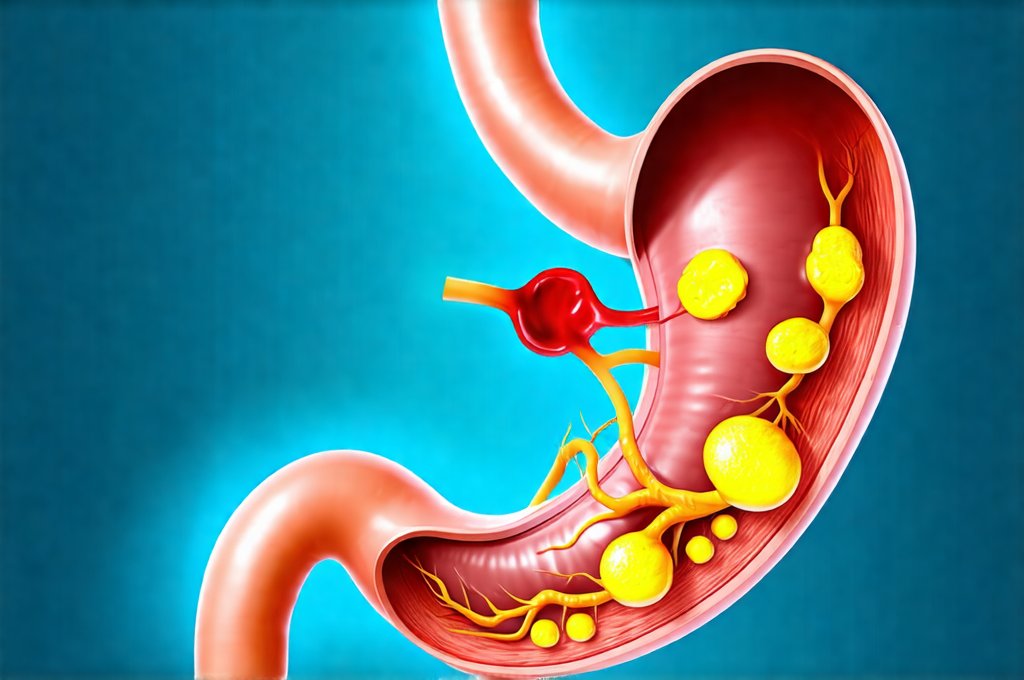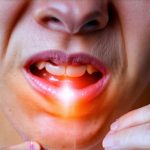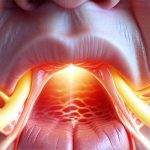Reflux is something most people experience at least occasionally – that burning sensation in your chest after a meal, the sour taste in the back of your throat, or even just a persistent feeling of discomfort. Often dismissed as simply “heartburn,” it’s easy to treat these symptoms with over-the-counter remedies and move on. However, frequent or severe reflux isn’t merely an annoyance; it can be your digestive system signaling something deeper is going on. Understanding what your stomach is trying to tell you through these signals requires looking beyond the immediate discomfort and exploring the complex interplay of factors that contribute to acid reflux and related conditions. It’s about recognizing reflux as a symptom, not a disease itself, and investigating the potential underlying causes.
This article aims to decode those messages, helping you understand when reflux is a normal occurrence and when it warrants further investigation. We will explore the common causes of reflux, the different ways it can manifest, and importantly, what those varying presentations might indicate about your overall digestive health. It’s crucial to remember that self-diagnosis isn’t advisable; this information is intended to empower you to have more informed conversations with your healthcare provider, not to replace professional medical advice. The goal is to move beyond simply suppressing the symptoms and towards understanding – and addressing – the root causes of your reflux experience.
Decoding the Signals: Beyond Basic Heartburn
Reflux occurs when stomach acid flows back up into the esophagus, irritating its lining. This isn’t inherently problematic if it happens infrequently. We all experience transient episodes, especially after large meals or specific foods. The lower esophageal sphincter (LES), a muscular ring at the bottom of your esophagus, is designed to prevent this backward flow. However, when the LES weakens or relaxes inappropriately, acid can creep upwards causing those familiar symptoms. But the type of heartburn you experience – its intensity, timing, and associated sensations – offers valuable clues. Is it immediately after eating? Does it happen at night while lying down? Is it accompanied by a bitter or sour taste, or something else entirely? These nuances matter.
The location of discomfort can also be indicative. While chest pain is the most common symptom, reflux can manifest in surprising ways. Some people experience a chronic cough, hoarseness, or even dental erosion due to acid exposure. Others might feel a lump in their throat (globus sensation) – not necessarily related to swallowing but often linked to esophageal irritation. These atypical symptoms are frequently overlooked as something else entirely, leading to delayed diagnosis and appropriate treatment. Recognizing these less conventional presentations is vital. Don’t assume it’s “just heartburn” if the symptoms don’t fit the typical mold. If you find yourself struggling with digestion after a cheat day, consider how to calm your stomach.
Finally, consider what triggers your reflux. Certain foods are well-known culprits – spicy foods, fatty meals, chocolate, caffeine, alcohol, and carbonated beverages all tend to exacerbate symptoms. However, lifestyle factors like stress, obesity, smoking, and even tight clothing can also play a significant role. Identifying your personal triggers is an important step in managing reflux and understanding its underlying causes. It’s about building awareness of how your body responds to different stimuli. Learning how to eat more without upsetting your stomach can also be helpful.
The Nocturnal Reflux Puzzle
Nocturnal reflux – heartburn that occurs primarily at night – presents unique challenges. When you’re lying down, gravity no longer assists in keeping stomach acid where it belongs. This makes it easier for acid to flow back up into the esophagus, leading to prolonged exposure and increased irritation. Furthermore, saliva production decreases during sleep, reducing its natural neutralizing effect on stomach acid. This combination can result in more severe symptoms and even damage to the esophageal lining over time.
- Difficulty sleeping is a common consequence of nocturnal reflux.
- Waking up with a sour taste or coughing fit are telltale signs.
- The prolonged exposure to acid increases the risk of developing GERD (Gastroesophageal Reflux Disease).
Addressing nocturnal reflux often requires specific strategies beyond simply avoiding trigger foods. Elevating the head of your bed by 6-8 inches can help utilize gravity to your advantage. Avoiding late-night meals and snacks is also crucial, as it gives your stomach less time to empty before you lie down. If symptoms persist despite these measures, it’s important to consult a healthcare professional to rule out underlying conditions or explore further treatment options. Understanding if your gut health is linked to immunity can also provide valuable insights.
Silent Reflux: The Stealthy Symptom
Silent reflux (Laryngopharyngeal Reflux – LPR) is particularly insidious because it often lacks the typical heartburn symptom. Instead of experiencing burning in your chest, you might notice a chronic cough, hoarseness, throat clearing, or a feeling of something stuck in your throat. This makes it difficult to diagnose without specific testing, as individuals may not even realize they have reflux at all. The acid in LPR doesn’t reach the esophagus enough to cause heartburn; instead, it travels further up and irritates the larynx (voice box) and pharynx (throat).
This silent progression can lead to significant complications if left untreated, including vocal cord damage, chronic laryngitis, and even an increased risk of certain types of cancer. Because the symptoms are often attributed to other causes – allergies, asthma, or postnasal drip – diagnosis is frequently delayed. Early identification is key. If you experience persistent throat issues without a clear explanation, consider discussing LPR with your doctor. You may also want to understand what to eat when your gut is inflamed.
The Connection Between Reflux and Stress
The mind-gut connection is increasingly recognized as playing a significant role in digestive health. Stress doesn’t directly cause reflux, but it can certainly exacerbate symptoms. When we’re stressed, our bodies release cortisol, the “stress hormone.” Cortisol can disrupt normal digestive processes, leading to increased stomach acid production and relaxation of the LES – both contributing factors to reflux. Furthermore, stress can alter gut motility (the movement of food through the digestive tract), potentially slowing it down and increasing the risk of backflow.
- Stress also affects our lifestyle choices; we might be more likely to overeat, choose unhealthy foods, or skip meals when stressed.
- Chronic stress can lead to a vicious cycle: reflux symptoms cause anxiety, which further exacerbates reflux.
- Techniques for managing stress – such as yoga, meditation, deep breathing exercises, and regular physical activity – can significantly improve digestive health and reduce the frequency of reflux episodes.
Prioritizing mental wellbeing is therefore an integral part of managing reflux. It’s not just about what you eat; it’s about how you feel too. If you are concerned about your gut microbiome, consider if it’s possible to reset it.
Beyond Lifestyle: Identifying Potential Underlying Issues
While lifestyle modifications are often effective for mild to moderate reflux, persistent or severe symptoms may indicate a more complex underlying issue. Gastroesophageal Reflux Disease (GERD) is the chronic and more serious form of acid reflux. It’s diagnosed when reflux occurs frequently enough to cause noticeable symptoms or complications, such as esophagitis (inflammation of the esophagus), esophageal strictures (narrowing of the esophagus), or Barrett’s esophagus (a precancerous change in the lining of the esophagus). However, GERD isn’t always the culprit.
Other conditions can mimic reflux symptoms or contribute to their development. Hiatal hernia, where a portion of the stomach protrudes through the diaphragm, can weaken the LES and increase the risk of acid reflux. Gastroparesis, a condition in which the stomach empties too slowly, can also lead to increased pressure and backflow. Even certain medications – such as some pain relievers, antidepressants, and calcium channel blockers – can relax the LES or delay gastric emptying, exacerbating reflux symptoms. It’s crucial to differentiate between occasional reflux, GERD, and these other potential contributing factors.
Importantly, functional digestive disorders like dyspepsia (indigestion) can present similarly to reflux but have different underlying causes. Dyspepsia doesn’t necessarily involve excess acid; it often relates to altered gastric motility or visceral hypersensitivity (increased sensitivity to normal gut sensations). Accurate diagnosis is essential for tailoring treatment effectively. This may involve a range of tests, including endoscopy (visual examination of the esophagus and stomach), pH monitoring (to measure acid levels in the esophagus), and gastric emptying studies. If you are experiencing these issues, it’s helpful to know how to know if your gut is healing. Lastly, understanding is low stomach acid causing your issues can help narrow down the root cause.


















